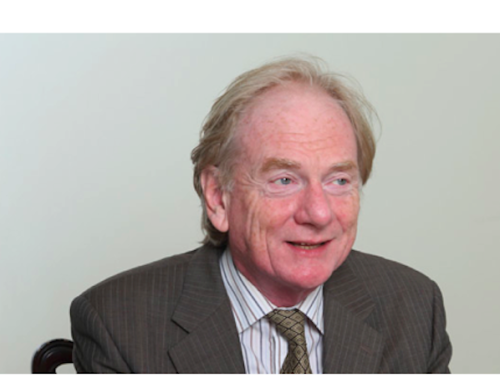The saying might go there are ‘lies, damned lies and statistics’, but data provided by the TATOC Consumer Helpline, Europe’s only charitable association representing timeshare owners provides a compelling and informative snapshot of the industry today.
Updated and issued every month on the TATOC website and distributed to government departments, U.K. and European consumer bodies and industry organisations, the TATOC Consumer Helpline report is a barometer for what is happening to timeshare consumers.
And its message should not be ignored.
Four years after the implementation of the EU Timeshare Directive (2008/122/EC), the TATOC Consumer Helpline report shows, while there has been improvement in some areas, scammers and opportunists have been quick to take advantage of loopholes and ‘grey’ areas.
First the good news.
Comparing statistics from January 2011 (the last TATOC report before the implementation of the EU Directive) and January 2015, it is clear some things never change.
The Helpline report divides consumer contacts that come via telephone, email and online LiveHelp facility, into enquiries and complaints about 17 case types. Everything from specific re-sale companies and exchange to legal businesses and unsolicited calls is covered.
While the overall number of enquiries to the Helpline has increased from 242 into 2011 to 291 in 2015 (a rise of 20 per cent), the total number of complaints during these months fell from 121 in 2011 to just 55 in January 2015. This is a decrease of 54.5 per cent.
And the data provides even more detail. Complaints about the activities of specific re-sale companies fell from 59 in 2014 to just 19 in 2015 – a decrease of 67.7 per cent.
TATOC believes this is a direct result of the changes to legislation brought by the EU Directive. It is now harder for scammers to target consumers through inappropriate timeshare re-sales practices.
Another interesting trend is the fall in enquiries and complaints about sales and marketing activities of non-timeshare products. These include discount holiday clubs, bonus week offers and leisure credit schemes.
In January 2014, there were 21 complaints about companies selling non-timeshare products. By January 2015, there were just seven – a decrease of 66.6 per cent.
Why does this matter? Well, with a media that is ready to jump on the bandwagon regarding any holiday product that could be deemed to be timeshare-related, these statistics indicate the good news that the scammers have moved to other areas.
Another area where the TATOC Consumer Helpline has seen a reduction in enquiries and complaints involves cash-back offer failures.
Timeshare owners are often enticed into a cash-back or reclaim certificate scheme promising a generous return in three or so years.
Typically, these schemes either fail to pay out or only pay out a tiny percentage of the amount predicted – and some companies have gone into liquidation before paying out.
These positive trends are reflected in all reports from 2012. Said Harry Taylor, TATOC executive chairman and CEO: “This must be the only industry where success is measured in a reduction in numbers.”
Of course, the EU Directive has played its part, but the activities of TATOC are also having an impact.
Every month the association releases its monthly list naming and shaming cold calling companies.
It also issues regular consumer alerts on its website and through social media and with its ‘Five Golden Words: Don’t Deal With Cold Callers’ campaign, the message is getting through.
“The EU Directive has been a success in many ways,” explained Taylor. “But TATOC’s activities have been instrumental in keeping consumers aware of changes in legalisation and warning them never to deal with a company that initiates contact.
“Our objective is to make sure that resorts keep passing this message on to their owners through their own communications, which is not always easy.”
So if the scammers have moved from re-sales, cash back schemes and the marketing of non-timeshare products, where have they gone?
Unfortunately the scammers have not packed up and found another industry to tarnish.
Instead, using ambiguities in the EU Directive, taking advantage of the Internet’s ability to communication with large number of consumers and even making the most of recent legal judgements, the Helpline has reported an increase in enquiries about legal companies.
Complaints have remained steady, but there is an alarming increase in the number of so-called legal companies cold calling timeshare consumers and offering the chance to join class actions or cancelling contracts – all at a price of course.
In January 2014, there were 14 enquiries about the activities of bogus legal companies. In January 2015 this had increased to 20 – a rise of 42.8 per cent. “We believe this is the thin end of the edge,” added Taylor. “We find that many timeshare owners who have been scammed by bogus re-sales companies are now being targeted again by bogus legal firms – and the number of complaints when owners realize they have been scammed again is bound to rise.”
A recent scam, which was netting over £3.5 million per year and recently broken up by Spanish police, highlights the problem.
The three-tier scam involved calls from fake lawyers and court officials persuading owners to hand over up to £35,000 after being conned into selling their timeshares.
Telesales operators contacted potential victims and offered them attractive prices to sell their timeshare properties and took advantage of their ignorance of Spanish law to instruct them to pay things like administrative or public notary fees. Once victims had been conned and knew they were never going to get their money back, a second group of people would call claiming to be lawyers saying they were going to launch a group action on behalf of victims and asking once again for money upfront.
The third tier involved people posing as court officials ringing victims and saying cases had been resolved in their favour, but they had to pay fees so they could obtain their cash settlements.
There is much talk in the industry about exit strategies – and this is reflected in the statistics provided by the TATOC Consumer Helpline.
In 2011, there were 11 enquiries into exit routes by consumers. Four years later and this had jumped to 35 in just one month – a rise of 218 per cent.
While the figures for January are probably skewed because management 74 Perspective Magazine May/June 2015 TATOC UPDATE fee payments are due that month, this large increase indicates what the industry already knows.
The time to talk about exit strategies has been and gone – resorts have to start implementing exit programmes.
“We know that exit can’t mean exodus, but TATOC as an association has been talking about exit strategies for the past four years and legacy resorts need to take note of these statistics. It is not a problem that is going away any time soon,” explained Taylor.
For some owners, maintenance fees have always been an issue – especially if they were not fully explained during the sales process. However, a combination of an aging ownership base and difficult economic conditions has meant an increase in enquiries about maintenance fees.
Many of the enquiries are focused on what happens to the owner if they just stop paying them and the team has to explain why this is not an option for most owners.
However, this has to be countered with further advice.
“Many of these owners are desperate. They can no longer afford to pay their maintenance fees and have been unsuccessful in selling. They are the perfect targets for scammers who woo them with too-good-to-be true offers,” explained Taylor.
Such companies offer to take-over the ownership from desperate owners for a fee of several thousand pounds.
Seen by some as a way out of their liability, the cruel truth is that the transfer of ownership often never happens and, in many cases, the consumer has bought into a worthless travel club with little or no protection.
In January 2014, there were two complaints about take over activities. By January 2015, this had increased to seven in one month – a rise of 250 per cent.
“The EU Directive has clearly helped clean up the industry and we are waiting to see what the review of the Directive expected later this year has to say. There are still issues as our data shows but these maybe for the industry to rectify itself rather than rely on legislation to do for them,” added Taylor.
The TATOC Consumer Helpline is a U.K. based registered charity and provides unbiased assistance to all consumers. Further information can be found at: www. tatocconsumerhelpline.eu.
The monthly TATOC Consumer Helpline report is available to all TATOC members and can be downloaded on the TATOC member website at www.tatoc.co.uk.
Information on TATOC individual and resort membership is also available here.





